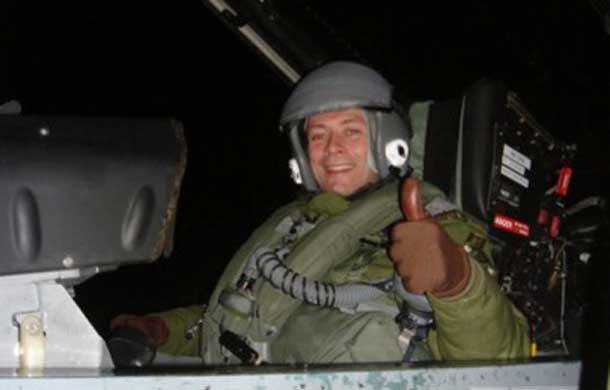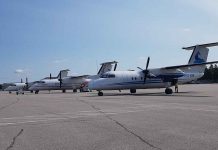

Military Service Helps Thunder Bay Doctor Give Back
THUNDER BAY – Thunder Bay plastic and reconstructive surgeon Dr. Mark Thibert is committed to serving his country, as well as patients. Involvement in military medical service offered an opportunity for both personal and professional growth, says Dr. Thibert. “Over the years I came to realize that I wanted to broaden the scope of what it means to be a plastic surgeon.”
Dr. Thibert was honoured earlier this summer in Brno, Czech Republic with three appointments in the North Atlantic Treaty Organization’s (NATO) Interallied Confederation of Medical Reserve Officers, more commonly known as the Confédération Interalliée des Officiers Médicaux de Reserve or CIOMR.
Dr. Thibert, who practices at Thunder Bay Regional Health Sciences Centre (TBRHSC), attended the congress as the organization’s Canadian Vice-President, a position he has held since December 2012. In his new role as Chairman of the Scientific Committee, he will be responsible for sessions for the scientific education of all reserve medical officers, from basic to clinical and operational best practices. The Scientific Committee is responsible for the theme and content of the sessions at CIOMR meetings, the next of which is scheduled for February 2014 in Brussels.
“A lot of host countries don’t have the resources for sub-specialities such as plastic surgery, neurosurgery and ophthalmology. So I’ll be looking at specialty skill sets that could be taught to the regularly deployed surgeons in areas such as burn care, skin grafts, skin and muscle flaps, and hand surgery.”
He was also appointed as Chairman of the Task Force addressing key issues for reserve medical officers from all countries within NATO.
And he was selected to be part of a working group of NATO’s Committee of Chiefs of Medical Services (COMEDS) which provides advice regarding deployment and training standards for surgeons.
Dr. Thibert is all too familiar with the particular needs of medical reserve officers, having been deployed as a Canadian Forces medical reservist to Afghanistan in 2008. He worked as a Plastic and Reconstructive Surgeon in the Role 3 Multinational Medical Unit (MMU) at the Kandahar Air Field. The mission of this trauma hospital was to provide comprehensive medical services to coalition soldiers, Afghan National Security Forces, and civilians.
“By and large the majority of the injured were from the host nation,” says Dr. Thibert.
Following his service, Dr. Thibert received the Afghanistan Campaign Star, awarded to members of the Canadian Forces and allied forces working with the Canadian Forces who deploy into and take part in operations in the presence of an armed enemy.
Becoming a reserve officer was a decision Dr. Thibert made later in his career. He joined the Health Services Reserve in 2005 as a member of 18 (Thunder Bay) Field Ambulance. His experiences encompass many different realms of medicine, including his work as a flight surgeon on an F-18 Fighter Jet and dive medicine.
“It has been even more rewarding than I had anticipated. Every day with the Canadian Forces presents new challenges and fabulous individuals to work with and learn from. It’s an opportunity that I feel everyone should experience.”
In addition to personal and professional development, Dr. Thibert says that he has been able to translate his experience with the Canadian Forces into enhanced care in his home community at TBRHSC. “I’ve been able to bring back so much in terms of leadership, clinical skills, and writing skills to my practice and my patients at TBRHSC.”













